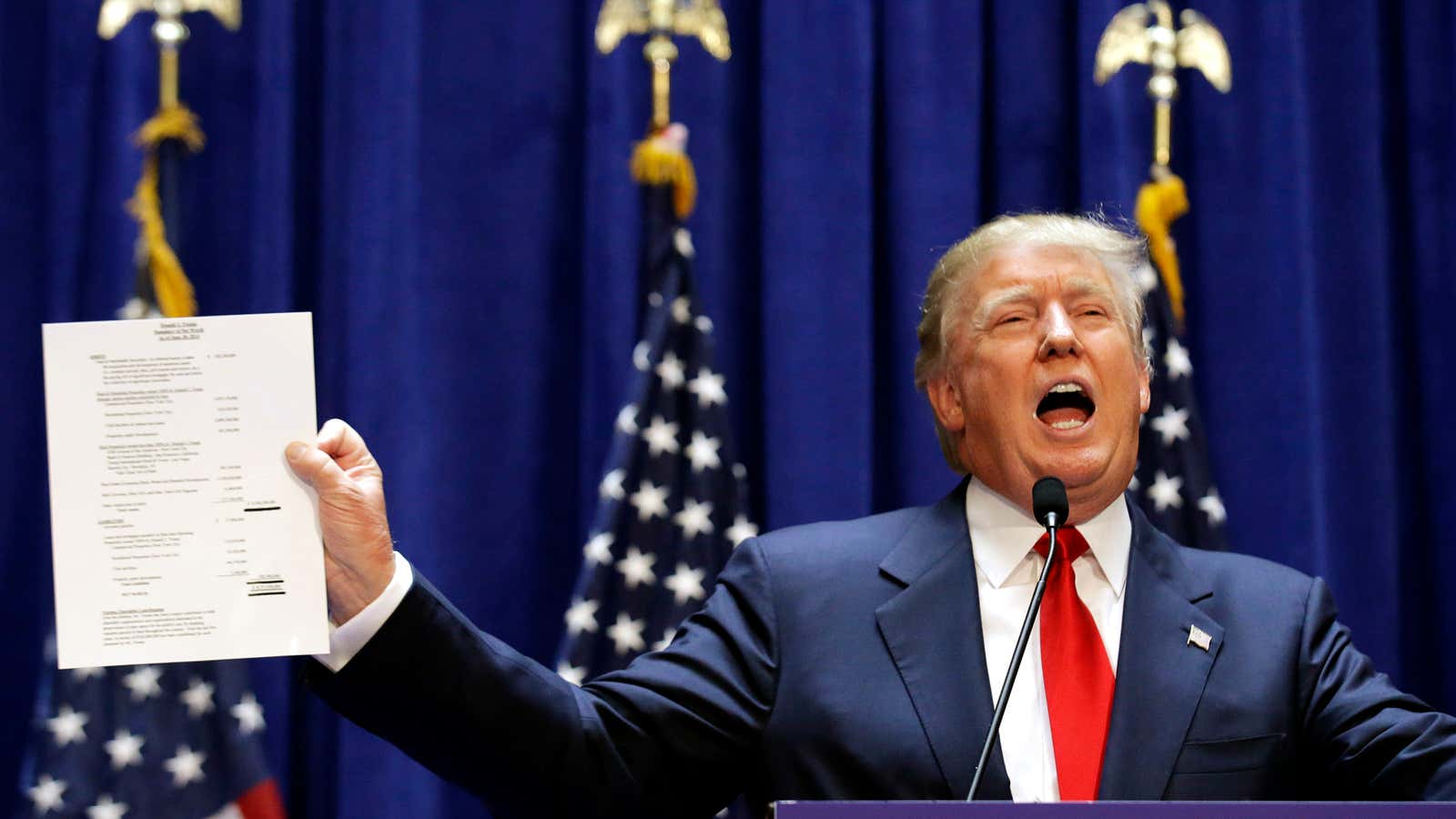Refusing to dispel accusations that he is lying about his wealth, presumptive Republican presidential nominee and self-described billionaire Donald Trump says he will not release his tax returns before the 2016 election.
“There’s nothing to learn from them,” he told the Associated Press.
That belies the entire premise of Trump’s campaign: his fabulous wealth and supposed business success. He has lent his campaign $35 million during the primary election, and raised an additional $12 million from donors.
Since the 1970s, US presidential candidates have typically shared their returns to demonstrate their independence and transparency. Almost all the other candidates have done so in 2016—including Hillary Clinton, the likely Democratic nominee, who released 15 years of returns. Her party rival, Bernie Sanders, has been more reluctant, and only shared one tax return, from 2014.
These returns can become a salient political issue. In 2012, GOP nominee Mitt Romney only released two years of tax returns and was tarred by critics, who argued that the wealth he accrued as a private equity investor left him out of touch with typical Americans.
For someone who began his recent political career by demanding the president produce his birth certificate, Trump has found many reasons to avoid his own disclosures. One excuse Trump uses when asked about his returns is that he is being audited by the IRS. He shared a letter written by his attorneys saying that his tax examinations from 2002 to 2008 were complete, and that audits were on-going from 2009.
But no audit would preclude him from releasing the returns he prepared, however, or more recent returns. An IRS audit for his most 2015 tax filings is unlikely to be underway already. Former IRS officials have said that it would be extremely unusual for an individual to be audited multiple years in a row.
The candidate’s claims about his net worth have been questioned by financial observers, who wonder if his fluctuating estimates add up. And in one instance, Trump claimed a tax deduction reserved for people who make less than $500,000 annually—a remarkably small income for someone with billions in investments.
Trump has gone to court before to dispel claims that he is not as rich as he claims: He sued journalist Tim O’Brien in 2005 for a book that reported his net worth was lower than he claimed. ”There’s reasons, I think, he doesn’t want to give up his tax returns,” O’Brien told Politico last month. “It’s because you see what his income actually is in those returns. Later in the case, he moved to settle, we stayed in there, and then it got tossed out—he lost.”
Another attempt to estimate his income, using the financial disclosures required by presidential candidates, suggested he might earn $123 million a year, for a net worth of $3.3 billion.
The wide variance between estimates of Trump’s income suggest that something unusual is happening in the world of Trump’s tax preparation. Indeed, his campaign is signaling that it will expect to raise $1.5 billion for the general election from donors, rather than return to his Schrodinger’s box of a bank account.
The question now is whether voters will learn if Trump is honest about his finances before or after they go to the polls in November. Unless he is forced to release his returns that document his claims of immense wealth, we will have to take his word for it.
